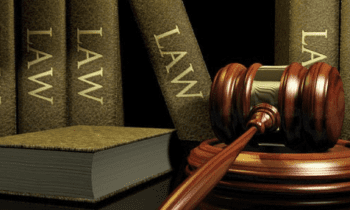
Introduction:
The role of law in society is vital, as it provides the framework for maintaining order, resolving conflicts, and safeguarding individual rights. The historical development of law showcases its evolution throughout civilizations, shaping our understanding of justice and governance.Law is a set of rules and regulations that regulate the behavior of individuals and groups in society. It is important for maintaining governance and stability, promoting justice and equality, and creating social norms and values.Laws provide a framework within which people can influence safety and security. It defines what is good behavior, what is unacceptable behavior, and provides ways to resolve conflicts. This helps create a society where people are safe and secure and can live without fear of being harmed or abused.Law also promotes justice and fairness. It protects the rights of all people regardless of race, religion, sex or gender. It also provides a way for people to seek redress when they commit a crime. This will ensure that everyone is treated fairly and equally before the law.
Protecting Individuals and their Rights
Preserving personal security
- Criminal law and law enforcement act as crucial deterrents against criminal activities, ensuring the safety of individuals and communities.
- Protection against physical harm is reinforced through stringent legal measures, which punish acts of violence and promote a sense of security.
Safeguarding personal property
- Property laws and regulations play a fundamental role in safeguarding personal belongings and real estate, providing individuals with legal protection against theft, vandalism, and trespassing.
- Intellectual property protection, such as patents and copyrights, ensures that innovators and creators are granted exclusive rights to their inventions and original works.
Protecting individual liberties
- Freedom of speech and expression, a cornerstone of democratic societies, empowers individuals to voice their opinions and ideas without fear of retribution.
- The right to privacy safeguards individuals from unwarranted intrusion into their personal lives, reinforcing their autonomy and personal freedom.
Ensuring Social Order and Stability
Maintaining public safety
- Law enforcement agencies, such as the police, uphold the law and ensure public safety by preventing and investigating crimes.
- Crime prevention and deterrence strategies, such as surveillance systems and community policing, help maintain order and discourage criminal activities.
Resolving disputes and conflicts
- Civil law provides legal remedies for individuals facing disputes, enabling them to seek justice and resolution through the court system.
- Alternative dispute resolution methods, such as mediation and arbitration, offer efficient and less adversarial ways of resolving conflicts outside of traditional legal proceedings.
Promoting social cohesion
- Laws against discrimination protect marginalized groups and promote equal treatment for all individuals, fostering social cohesion and inclusivity.
- Egalitarian principles and fairness embodied in the legal system ensure that every individual is treated equitably, irrespective of their background or social status.
Facilitating Economic Growth and Development
Encouraging business and entrepreneurship
- Contract and commercial laws provide a secure legal framework for business transactions, encouraging entrepreneurs to engage in economic activities with confidence.
- Intellectual property rights reward innovation and creativity, inspiring entrepreneurs to invest in research and development without fear of ideas or inventions being misappropriated.
Ensuring fair market competition
- Antitrust and competition laws prevent monopolistic practices and promote fair competition, protecting consumers and businesses from unjust market dominance.
- Consumer protection regulations establish standards that businesses must adhere to, ensuring the safety and fair treatment of consumers in the market.
Providing a stable investment environment
- Corporate laws and investor protection mechanisms promote trust and confidence in business entities, attracting domestic and foreign investments necessary for economic growth.
- Legal frameworks for foreign investments offer a stable and predictable environment, assuring investors of their rights and protections when investing in a country.
Empowering Citizens and Communities
Ensuring equal access to justice
- Legal aid and pro bono services extend legal assistance to those who cannot afford legal representation, ensuring that justice is accessible to all members of society.
- Public legal education initiatives enhance legal literacy among citizens, empowering them to understand their rights and navigate the legal system effectively.
Fostering civic participation
- Laws protecting freedom of assembly enable citizens to peacefully gather and express their opinions, shaping public discourse and fostering democratic engagement.
- Legal mechanisms for citizen engagement, such as public hearings and consultations, enable individuals and communities to actively participate in decision-making processes.
Addressing societal challenges
- Environmental protection laws help combat climate change, preserve natural resources, and ensure sustainable development for future generations.
- Legislation for social welfare and healthcare establishes rights and provisions to address societal needs, ensuring the well-being and social progress of individuals and communities.
Challenges and Limitations of the Legal System
Inherent complexities and inefficiencies
- Legal procedures and bureaucracy can create difficulties for individuals navigating the legal system, often leading to delays and setbacks.
- Issues of delay and backlog in courts can hinder access to justice and may cause frustration among those seeking timely resolution.
Misuse and abuse of legal power
- Corruption and bribery within the legal system undermine its integrity and pose a threat to the fairness and impartiality of justice.
- Political interference in the judiciary can compromise the independence of the legal system, eroding public trust and undermining its effectiveness.
The need for ongoing legal reform
- Adapting to societal changes requires continuous legal reform to ensure that laws remain relevant and address emerging challenges.
- Ensuring legal accessibility for all individuals, including those from marginalized communities, is crucial for a just and inclusive society.
Conclusion
In conclusion, the power of law is undeniable for protecting and empowering society. It preserves personal security, safeguards property and individual liberties, ensures social order and stability, facilitates economic growth and development, and empowers citizens and communities. Understanding the importance of law in society allows us to build a more just and harmonious world.
